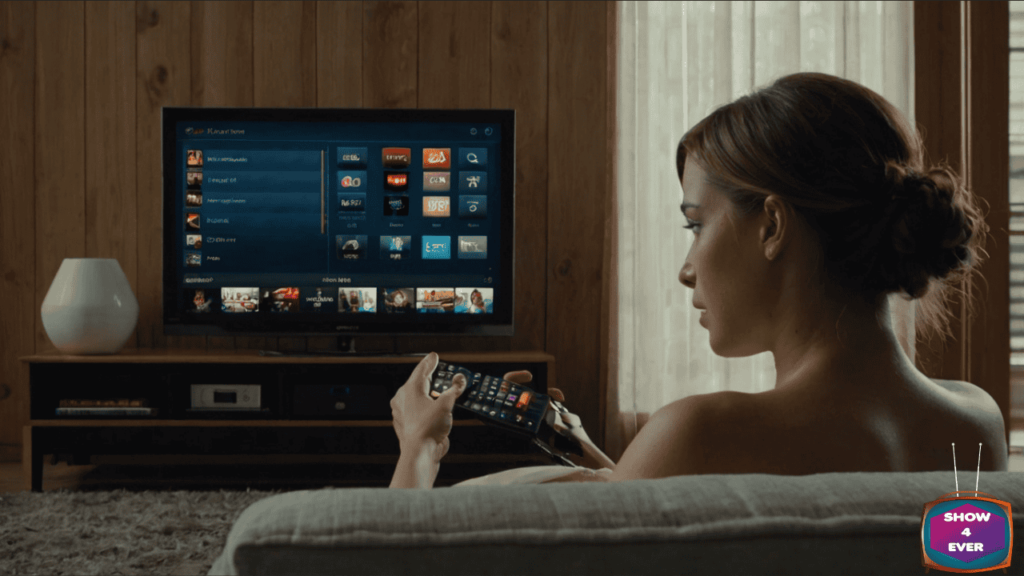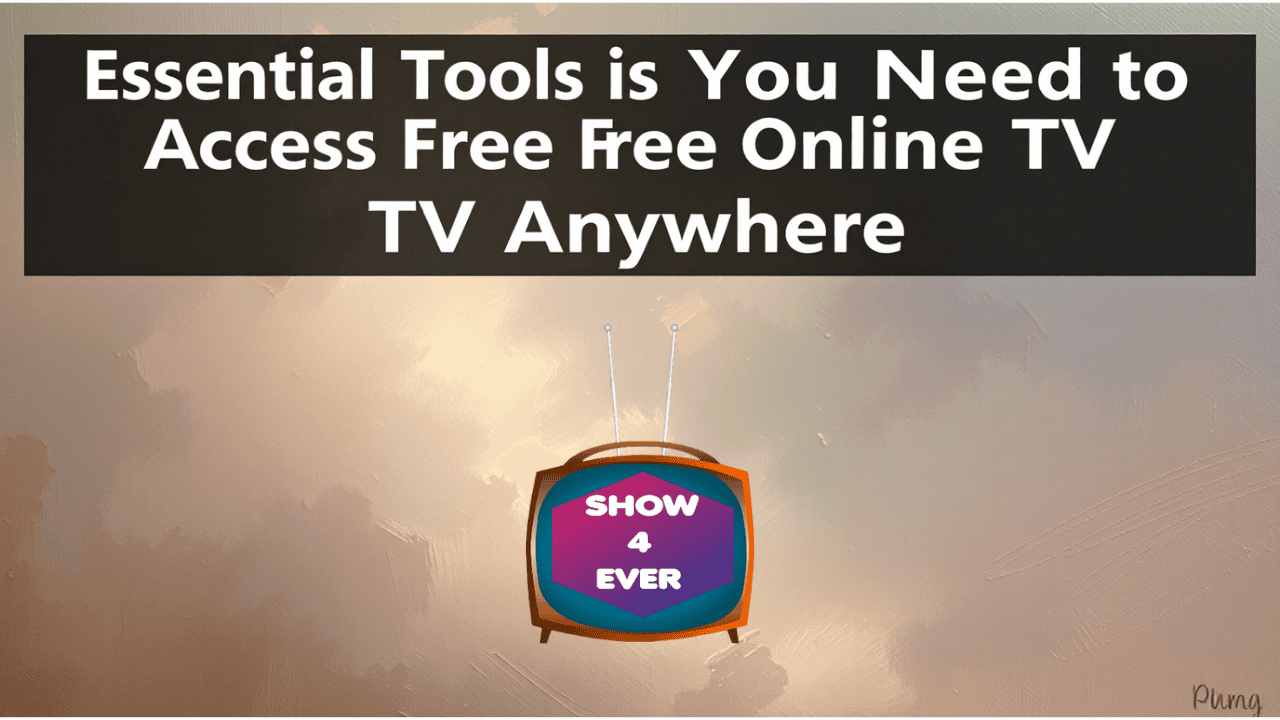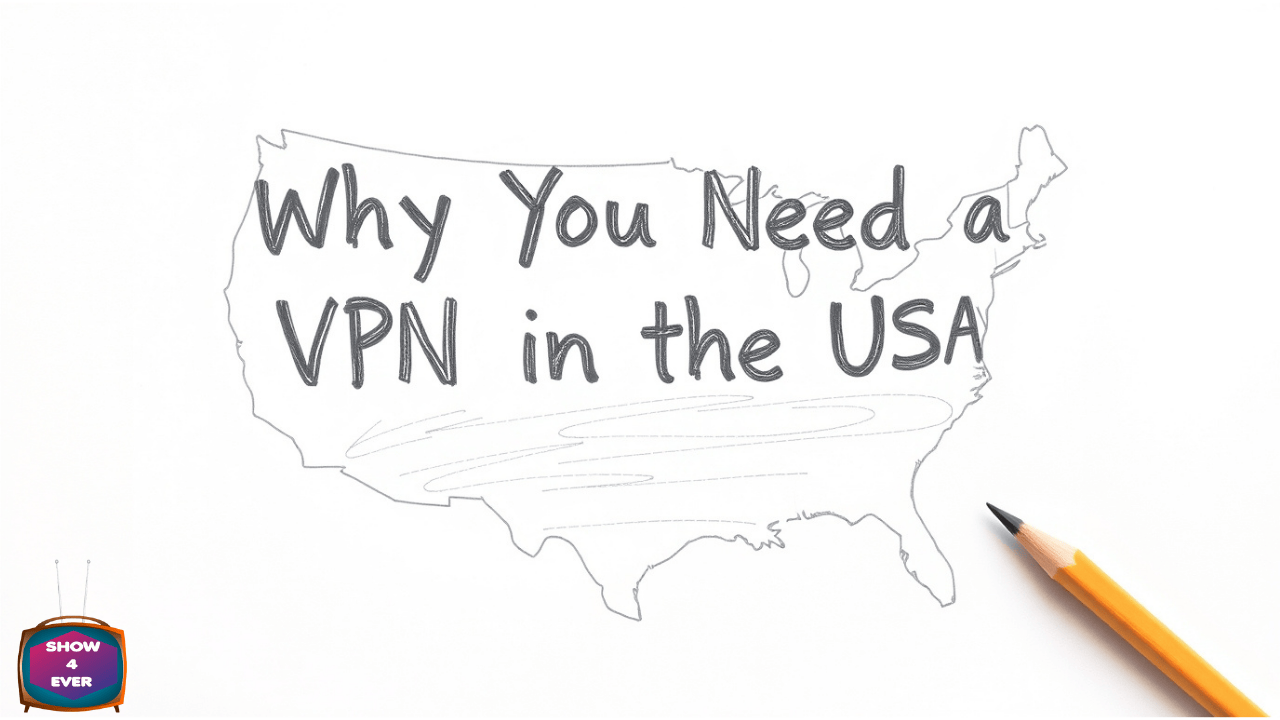Is It OK to Use IPTV Without a VPN? Discover the Shocking Truth!
Introduction
IPTV (Internet Protocol Television) has quickly become the entertainment world’s fan favorite, but the entertainment world has dramatically changed over the years. IPTV delivers live TV and on-demand content over the internet, changing how people watch their favorite shows, movies, and sports. But with this convenience comes a crucial question many users ask: Is it OK to use IPTV without a VPN? You need to know this if you’re already in the IPTV game or thinking of getting in.
So you’ve probably heard some mixed advice about whether or not you need a VPN. Some say you’re good to go without one, while others warn of all the possible risks. Spoiler alert: it’s a bit more than a yes or no. We’re diving deep into the core of IPTV and VPNs and why this combination just might be the smart thing. Get ready to have your streaming world rocked. Let’s go!
But what exactly is IPTV and why is it so big?
Connecting TV using Internet Protocol Television (IPTV) is a game changer for TV consumption. Traditional cable services will lock you into strict schedules and required and expensive packages while IPTV gives you flexibility, variety, and most importantly the ability to watch whatever you want whenever you want. This streaming works by transmitting content via the internet so all you need is a good connection and compatibility device like a smart TV, smartphone, or laptop to start streaming.
So why has IPTV gone so huge in the streaming world? It is a very cost-effective option. You can get a wider channel selection than you can from just traditional pay cable or satellite subscriptions for a fraction of the price you would otherwise pay. I know for a fact that IPTV platforms give you more bang for your buck… whether you want to watch live sports, news, or exclusive TV shows. Also, as many IPTV services offer all the features such as time-shifted media, Video on Demand (VoD), and the ability to pause or rewind live TV, it strains the bandwidth of your existing fiber optic cable. That flexibility is something who wouldn’t love.
Moreover, IPTV is very easy to access. You don’t have to worry about getting access to your television with bulky satellite dishes, or the necessary wiring—just an internet connection does it. IPTV does the trick as so many cord-cutters are trying to get rid of traditional services.
This is where the growing need for VPNs comes in, these prove to be great at expediting the process but are not without their legal and safety connotations. The great thing about IPTV is, well, fantastic, but as fantastic as it is, this leaves the door open to privacy issues, or legal gray area — or, gosh, both!
Is It OK to Use IPTV Without a VPN? Breaking Down the Risks

You might be wondering, Is it OK to use IPTV without a VPN? There are a few significant risks to consider depending, but … The real problem is privacy itself when using IPTV without a VPN. So whenever you’re streaming content, whether you’re ripping from legal sources or lesser regulated or 3rd party sources, your IP address is exposed. It’s a target for the ISP (Internet Service Provider), government, or hackers to track you.
When ISPs notice a user streaming large amounts of data, they throttle the bandwidth which means slower internet speeds. I know how bad it can be if you’ve ever had buffering just as the game was going on, or during a pivotal moment of a real game.
The other risk of legal consequences follows of course. Not all IPTV services are authorized to broadcast the content they are supplying, and some may be running at risk of legal gray zone or completely illegal. With these services, you cannot use them without a VPN as they can see your activity and your internet service provider among other parties. This could be more trouble than you’d like with the law in some countries. Using a VPN will replace your IP address with the one used by the VPN, and encrypt all the data you send. In other words, it’s harder to be watched while browsing the web.
Then there’s the security part. For example, cybercriminals can exploit less well-known IPTV services. These unregulated spaces tend to be more common for malware and phishing scams as well as other online threats. Without a VPN your data is at risk, from financial information such as credit card to other sensitive personal information if you are paying for subscription services.
So, is it OK to use IPTV without a VPN? Yes technically, but you’re also exposing yourself to a whole host of unnecessary risks by doing so. In this article, we’ll discuss how a VPN can tackle these concerns and protect your streaming experience in the safest, smoothest way possible.
IPTV stream protection: How VPN protects your IPTV Streaming Experience.

After all that is said and done, let’s talk about how a VPN (Virtual Private Network) can completely revamp your IPTV experience for the better. At its simplest description, a VPN takes your internet connection and encrypts it, then reroutes your data through secure servers all around the globe. That way, it becomes much harder for anyone, be it your ISP, hackers, or what have you, to track your online activity.
Let’s break down how a VPN enhances your IPTV experience:
- Privacy Protection:
If you use unencrypted IPTV streams, anyone can look up who you are to see your IP address and your online activity. A VPN is a program that will hide your IP address and assign you a new one, so the chances anyone will be able to trace your activity back to yourself are pretty much none. Especially if you are accessing IPTV services from somewhere that is not officially licensed or legal, this is especially important. It isn’t because your ISP will now be able to monitor what you’re watching and throttle your connection.
- Bypassing Geo-Restrictions:
One of my favorite things about a VPN is that it lets you bypass Geo-restrictions. Most of the international IPTV services have been restricted mainly to certain countries, and regions. If you have a VPN, you just choose a server in the country where the content is made available and voila, you’re in! This feature is perfect for sports fans who can’t seem to catch matches from international matches or any TV shows not from your country.
- Enhanced Security:
Without a VPN, streaming IPTV leaves you open to malware, phone starvation, and data breaches. A lot of IPTV services don’t have the same security standards as Netflix or Hulu do. Cryptographic data encryption occurs when you use a VPN that will protect your data from being hacked simply by encrypting your information which makes it far harder to be infected by malicious software or to uncover your private information as well. Just because a site isn’t very reputable, this added layer of security is important if you’re entering sensitive data or payment information.
- Avoid Bandwidth Throttling:
Do you notice that while you are streaming large files or live events, your internet gets slower? Common with IPTV services, ISPs are known for throttling bandwidth, and heavy usage is automatically detected. With a VPN, they can’t spy on what you’re doing and therefore they can’t throttle your connection either. In other words, streaming will be smoother, buffering virtually non-existent, and the IPTV will be more enjoyable.
In short, using a VPN with IPTV is not just for hiding the IP address to bypass geo-blocks, but also for protecting your privacy, increasing security, and at the final game, getting you all the best streaming enjoyment.
Myths About Not Using a VPN With IPTV
According to several persistent IPTV and VPN myths. That’s probably why you’ve heard some of these misconceptions, so let’s bust them once and for all.
1. Myth: VPNs Are For Hiding Illegal Activity Only
One of the biggest misconceptions out there. VPNs indeed conceal online activity, but they do a lot more than that. Users use VPNs for privacy, marketing protection, and for accessing geo-restricted content legally. Even if your IPTV service is legit, you still need to use a VPN to encrypt your data prevent your ISP from throttling your bandwidth, and keep prying eyes out.
2. Myth: IPTV without a VPN Is Safe.
This is a risky assumption. If you’re using a licensed name-brand service, your data is still vulnerable to being tracked, getting hacked, or accidentally breaking the law. Without a VPN you’re exposed to your IP address and your ISP can throttle your connection or monitor what you’re viewing.
3. Myth: Slow Down Your Connection With VPNS
While the truth is that VPNs will decrease your internet speed slightly due to the encryption process, the more accurate truth is that, when it comes to streaming, most high-quality VPNs have optimized servers for doing so. In truth, it’s even possible that using a VPN will make for a better streaming experience by getting around ISP throttling and ensuring a consistent and reliable connection.
4. Myth: All IPTV Services Are Illegal
Not all IPTV services are illegal, quite a lot of providers have legal streaming services with proper licensing agreements. But some of the less reputable ones may be in the legal grey areas. While you may believe you’re on the right side of the law, there’s still a high risk of fallout, and using a VPN will help protect you.
To make a more informed decision about whether or not you need a VPN when using IPTV, it’s important to debunk these myths.
Is It OK to Use IPTV Without a VPN? Here’s What Experts Recommend

So, after all this, is it OK to use IPTV without a VPN? Of course, every expert suggests using a VPN when plugging TV content into the net, especially on online IPTV. Here’s why:
Secondly, even if you’re using a free, genuine IPTV service it’s always better to protect your privacy. A VPN keeps your data and your online identity safe from upstream ISPs snooping, cybercriminals, and Trojans. If your IPTV service isn’t licensed in your location, using a VPN can help you mask your location so you don’t get in trouble with the law.
Second, very nice VPN functionality of bypassing geo-restrictions. A tricky way to catch that international sports event that’s blocked in your country. A VPN has your back. So if it is about accessing only exclusive TV shows, or if it is about accessing showing off content from anywhere in the world, it would have been otherwise illegal.
Furthermore, a VPN can speed up slow, buffering streams if you’re sick of buffering and slow streams. VPN experts say VPNs create a better, smoother streaming experience.
Conclusion
IPTV is a great exciting and flexible option in today’s streaming landscape to provide entertainment without any limits. But is it OK to use IPTV without a VPN? You technically can, but there are privacy risks, legal consequences, and all other security concerns. VPN works as all the soup you need to protect your data and unlock internet content across the spectrum, while the IPTV use case just up the ante.
Are you ready to take advantage of your IPTV setup? Start streaming smarter, safer, and faster! Grab a good VPN and get started.
Share this content:

















1 comment